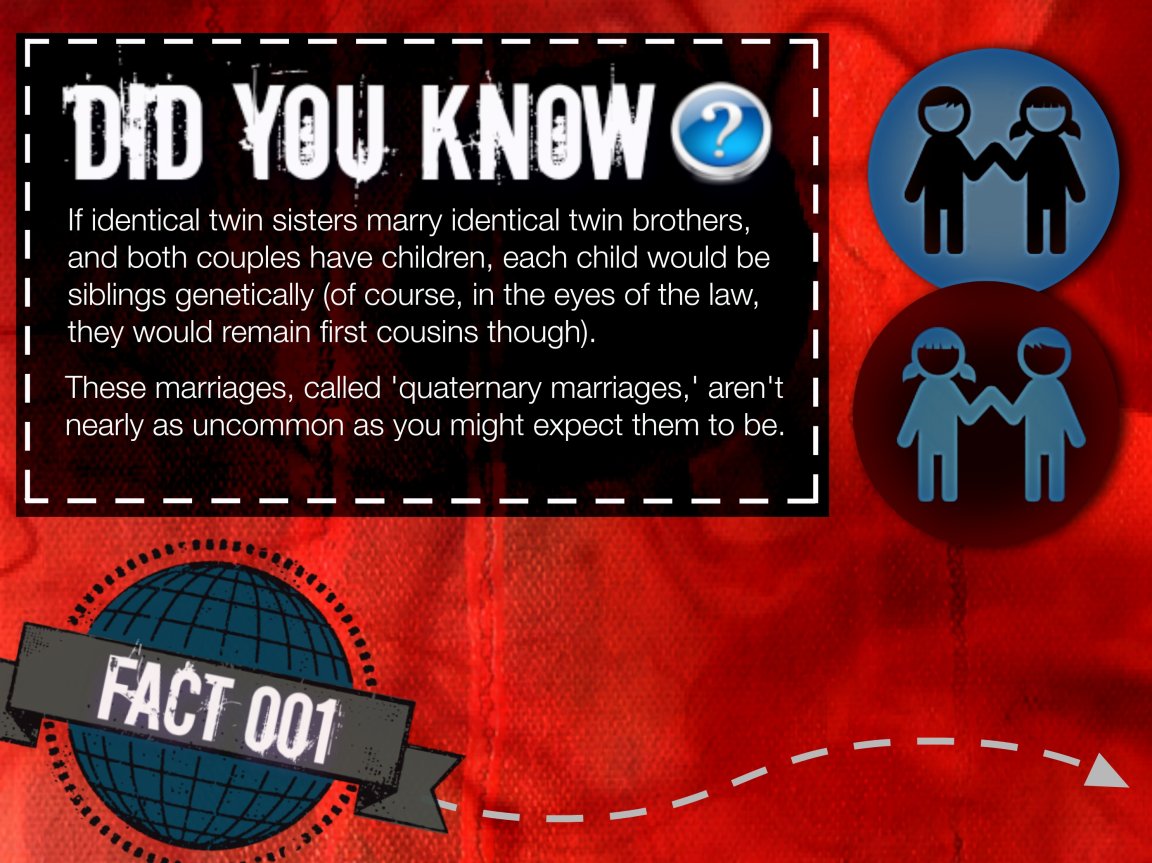

It might sound crazy to some people (maybe even taboo to others), but a pair of identical twins marrying identical twins is called a ‘quaternary marriage.’ Although rare, they do happen. In fact, there are about 250 marriages like this on record (The most famous of which, are Teyolla and Keyolla Loux and their husbands, Shawn and Eric Crow). Unsurprisingly, these couples may even go on to have identical twins of their own.
In either scenario, from a genealogical (not to mention, legal) point of view, any offspring would technically be considered first cousins, but their DNA would be hard to distinguish from that of full genetic siblings. Furthermore, it would be almost impossible to figure out who the biological parents are based on the DNA alone (of course, that explanation is too tidy. There are also other factors that might make formal identification possible).
How can this be? Think about it for one mind boggling moment…
Identical twins share the exact same genetic material, egg/sperm and all (while fraternal twins are conceived from a different egg and sperm). So in this case, the four “sets” of DNA are the same as only two sets.
To explain further;
Human beings receive one chromosome from their mother and one from their father, thus receiving two copies of the genome. If bits of DNA are missing from a chromosome, the offspring is left with only one copy of that DNA bit. In certain cases, multiple copies of a bit of DNA are produced, resulting in mutations. This results in differences in the health and development of identical twins.
According to a recent genetic research, monozygotic or identical twins are formed as a result of the collapse of a blastocyst, leading to the division of the genetic material on two sides of the embryo. Wondering how this happens? Let’s start with what a blastocyst is and then understand how the genetic material is divided. A blastocyst consists of an inner cell mass known as embryoblast and an outer cell mass known as trophoblast. The embryoblast eventually forms the embryo while the placenta is formed from the trophoblast. When the blastocyst collapses, the progenitor cells, which contain the genetic material of the body, split. This results in a division of the genetic material in two on the opposite sides of the embryo. This leads to the formation of two fetuses having similar genetic material, thus resulting in the birth of identical twins.
Interestingly, the children of identical twins are half-siblings and not cousins. Similarly children reproduced from the marriage of twin brothers to twin sisters, are full-siblings. Isn’t that amazing? Imagine, your mother has a twin sister, who has given birth to a daughter. Now, you and her daughter are half-siblings since you were born to mothers of the same genetic constitution!
[Reference: Buzzle]
Biology… you can’t make this s*!& up.